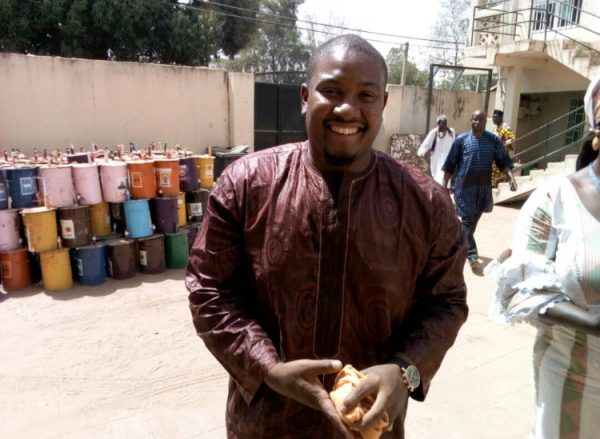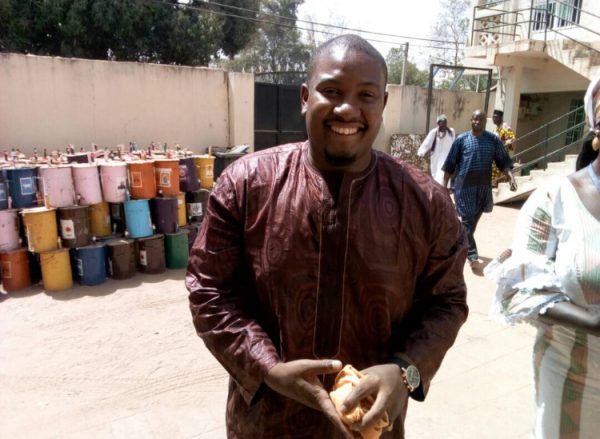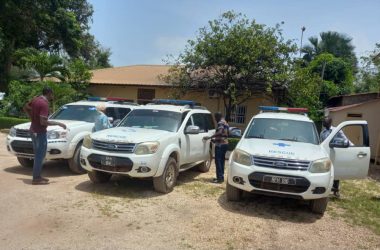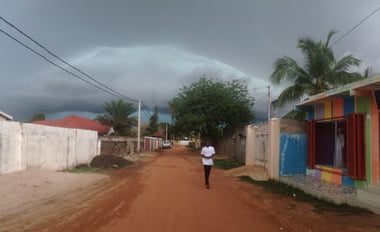
In the wake of polls results putting him on track of commanding today’s mayoral election, United Democratic Party (UDP) candidate in Kanifing Municipality has expressed hope to pull more votes than expected.
“I hope I will do more,” Bensouda told this reporter shortly after casting his ballot at Pipe-Line Mosque, about 8 km away from Banjul.
The UDP flag-bearer recently got an approval rating of 38.4% in an opinion conducted by University of The Gambia (UTG) political students under the supervision of renowned lecturer Dr.Ismaela Ceesay.
Bensouda said Gambia will win today, and added that this voting process will strengthen our democracy.
“Anyone who prevails, our democracy will win today,” he said in attempt to humble himself down.
He seized the opportunity to commend the Chairman of the Independent Electoral Commission (IEC) and President Adama Barrow for conducting a ‘free and fair election.’
Written by Abdoulie JOHN






The APRC emerging second in KMC is a trend that is made possible by Ousainou Darboe. This means a sizable population of the municipality sided with a killer cult by voting for Rambo. Rambo, don’t forget, has had his day before the Janneh Commission and huge sums of money have purportedly gone missing in his state-Jammeh-business-association.
Why people will turn to vote for someone like him needs careful analysis to see what’s the mood of the electorate towards the Adama government.
In my mind, and this might only be a fantasy, the APRC should have been buried in its own mess a long time ago.
Ousainou abandoning the coalition agenda has made the political arrangements that brought us change very weak, thereby emboldening Yaya’s party. Unfortunately!
It is quite clear that new Gambia has not changed much from old Gambia, in so far as voting trends are concerned. Many are still swayed by incumbency and the UDP is enjoying repeated successes at the polls, because rightly or wrongly, they are perceived as the ruling party. And the UDP itself has worked very hard to create this impression in the public mind, soon after their leader gained his freedom, thanks to the coalition victory.
The departure from the non partisan agenda of Coalition 2016, engineered by Lawyer Darboe, leading to the total disintegration of the coalition and all its attendant consequences, did provide the APRC the environment it needed to be relevant, and the more the government is unable to deal effectively with the challenges it inherited, the louder the APRC’s voice. I agree with you Lamin.
Mr Ousainou Darboe bears a sizeable responsibility for this situation and no one should be complacent and underestimate what this could lead to by the next round of elections. The Gambia certainly don’t want an APRC back in power so soon, but the votes of their candidates in both KMC and Brikama, perhaps, two of the largest local government areas, should not be ignored.
Really Bax, the figures below don’t back this your statement: “the UDP is enjoying repeated successes at the polls, because rightly or wrongly, they are perceived as the ruling party”. For example, in BANJUL UDP got only 27%, in KANIFING UDP got only 43% and in KUNTAUR UDP got only 36%! In BANJUL 73% voted for the OPPOSITION – athough PDOIS got only 4%. Your theory that people voted for the UDP because they “perceived UDP as the ruling party” is NOT supported by the evidence of how the people actually voted: the majority of voters voted AGAINST the UDP.
You’re right my in-law, if looked at from the perspective of percentage of votes captured, but I wasn’t looking at it in that way. I approached the issue from the number of elective seats captured in every election, since the APRC lost their privileged position. In my view, the UDP is now viewed by many to be the occupant of that privileged incumbency position and that’s reflected in their gains in all of the elective institutions in the country: National Assembly, Wards & Mayoral. They have captured more than 50% of seats in each of the last 3 National Elections:
National Assembly: 31 out of 53 seats;
Ward Elections: 62 out of 120 seats;
Mayoral Elections: 7 out of 8 seats/chairs
There is no doubt that incumbency is a big pull factor in Gambian politics and the UDP is definitely enjoying that privilege now, even if their domination (percentage of votes received ) isn’t as emphatic as used to be in the past, with the last two occupants (PPP & APRC) of that position. There are explainable factors for this, but that’s not impotant here.
Many observers and followers of Gambia’s politics aren’t surprised by the decision of the UDP to abandon the non partisan agenda of Coalition 2016. The UDP is conscious of the pull factor of incumbency. They have lived and suffered from it under Jammeh and they were not going to go into the post Jammeh era without being perceived as the ruling party. That was why they insisted on a party led coalition format all along and that is why they have presented President Barrow as a UDP President.
This has led to a lost opportunity to disrupt the decadent political cultures and traditions of the first two republics and redirect our voters to a more healthier culture of politics and policking, through education and open discusions, during the transition period of 3/5 years. Instead, we have a continuation of the same old same, and with the election of both Talib Bensouda (the Bensoudas were no ordinary family under the 1st republic) and Rohey Lowe (daughter of Malick Lowe, prominent during PPP era), one could be excused for thinking that the elites of the 1st republic are back, through the 2nd generation.
Whatever the case, they should know that The Gambia has changed and the rule of old is no longer possibe.
Naah Bax. You’re reading too much into Bensouda and Lowe’s newfound shot in the arm.
There’s not so much of a legacy to speak of and there’s what I label, the fizzle phenomenon that seems to haunt a particular segment of The Gambia.
Granted that there’s what’s called the Lebanese Council in The Gambia!
I wonder why Gambia cannot seen to tell the wheat from the chaff?
Well, God willing, we will live to see these folks do their dance and then we can come back to the “on hindsight” stuff after the damage has been done.
A Lebanese/Arab Council that’s able and willing to go to bat for their own kith and kin, I must add!